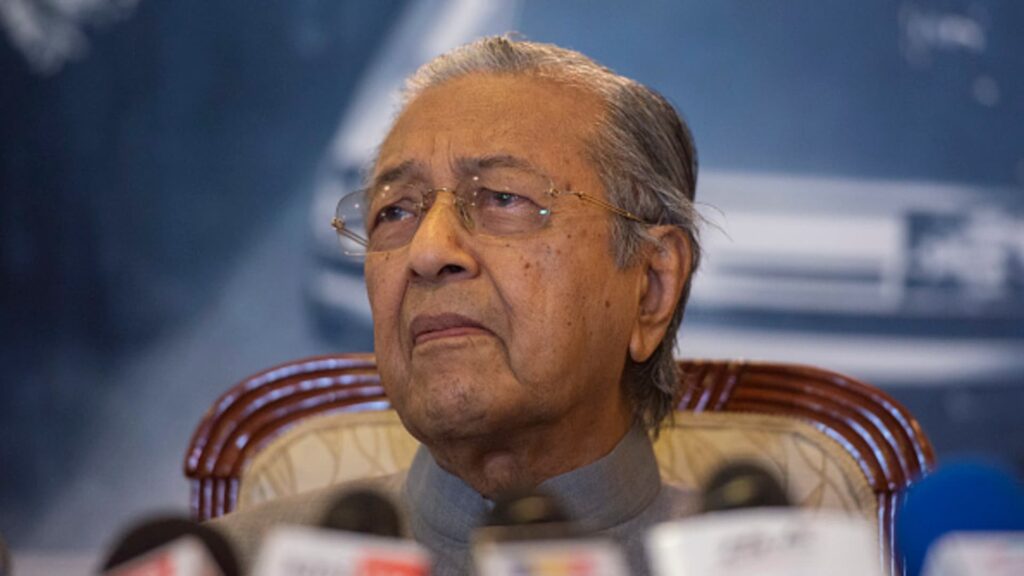
Former Malaysian Prime Minister Mahathir Mohamad said he and his family were not involved in any “corrupt practices”.
Last month, the Malaysian Anti-Corruption Commission said Mahathir was one of the individuals being investigated in connection with a corruption probe involving his son, Reuters reported.
Mahathir’s sons Mirzan and Mohezani were ordered to declare their assets in January as part of the investigation.
“During my tenure, there was corruption. But I was not personally involved in corruption,” Mahathir told CNBC’s “Squawk Box Asia” on Thursday.
“I made sure that even my family members could not be involved in government affairs because I might be accused of nepotism.”
Former Prime Minister Mahathir Mohamad during a press conference in Putrajaya, Malaysia on September 3, 2020.
Zahim Mohd | Noor Photos | Getty Images
The 98-year-old two-time former prime minister said he and his sons would “fully cooperate” with Malaysia’s anti-corruption agency.
“So far, they have only asked my son to declare his assets. The investigation does not involve asking me to declare my assets,” Mahathir said. He added that if the authorities asked him to declare, he was willing to do so because he had “nothing to hide.” .
Mahathir’s sons have reportedly said their father is the main target of a corruption investigation into whether he “abused his position as prime minister”.
Mahathir’s ally and former Malaysian finance minister Daim Zainuddin has also recently come under investigation for financial dealings, according to local media reports.

Prime Minister Anwar Ibrahim has vowed to root out corruption, but critics accuse him of targeting his former political rivals, a charge he denies.
According to the government’s most recent anti-corruption report, the country lost a staggering 277 billion ringgit ($58.77 billion) to corruption from 2018 to 2023. It also stressed that the political impact of corruption is “undeniably serious”.
According to the report, more than 80% of Malaysians say they have “lost trust and respect” for politicians and national leaders due to ongoing corruption issues.
A lack of serious leadership, the appointment of “questionable figures to key political positions” and a lack of political commitment to implement anti-corruption measures or “punish those who engage in corrupt practices” undermine the trust and effectiveness of anti-corruption efforts,” it added.

